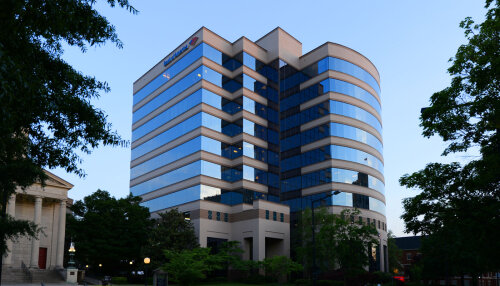Best Premises Liability Lawyers in Knoxville
Share your needs with us, get contacted by law firms.
Free. Takes 2 min.
List of the best lawyers in Knoxville, United States
About Premises Liability Law in Knoxville, United States
Premises liability covers legal claims that arise when someone is injured because a property owner or occupier failed to keep their property reasonably safe. In Knoxville, premises liability claims commonly involve slip-and-fall incidents, unsafe stairways, poorly maintained sidewalks, inadequate lighting, negligent security, dog bites, and hazards at rental properties or businesses. Tennessee law shapes how these claims are evaluated - courts look at the property condition, what the owner knew or should have known, whether the injured person had permission to be on the property, and whether the injured person contributed to the accident.
Why You May Need a Lawyer
Many premises liability cases benefit from experienced legal help. A lawyer can:
- Assess liability and the strength of your claim based on evidence and applicable Tennessee law.
- Collect and preserve important evidence such as photographs, surveillance video, maintenance records, and witness statements.
- Calculate damages beyond immediate medical bills - including future medical care, lost wages, pain and suffering, and reduced quality of life.
- Handle communications with property owners and their insurance companies - insurers often try to minimize payments or obtain recorded statements that can hurt claims.
- Advise about special procedural rules - for example, claims against government entities or landlords may require specific notice procedures and strict timelines.
- Negotiate settlements and, when needed, represent you in court to seek full and fair compensation.
Local Laws Overview
Key local and Tennessee law points to know if you are pursuing a premises liability claim in Knoxville:
- Duty of Care and Visitor Status - Tennessee still looks at the visitor s status in many cases. Invitees - people invited for business or mutual benefit, like store customers - generally receive the highest duty of care. Licensees - social guests and others on the property with permission for their own purposes - are owed a lower duty. Trespassers are owed minimal protection, although special rules apply for children and situations involving willful or wanton conduct.
- Duty to Warn and Inspect - Property owners and occupiers must exercise reasonable care to keep premises safe. That can include regular inspections, prompt repairs, and adequate warnings about hidden dangers. The duty and scope of reasonable care depend on the nature of the property and the foreseeable uses of the space.
- Comparative Fault - Tennessee follows a modified comparative fault system. If you were partially at fault for your injury, your recovery can be reduced by your percentage of fault. However, if your fault exceeds the legal threshold, you may be barred from recovery. Consulting a lawyer promptly helps clarify how comparative fault might affect your case.
- Statute of Limitations - Personal injury claims must be filed within Tennessee s statute of limitations. State law sets a limited period to bring a lawsuit after an injury. Missing that deadline can prevent you from pursuing compensation, which is why timely legal consultation is important.
- Government and Public Property - Suing a government entity or public agency involves special rules and notice requirements that differ from private-party claims. Those rules often include strict deadlines and procedural steps.
- Landlord-Tenant Standards - Tennessee law imposes responsibilities on landlords to maintain safe premises and make repairs in many circumstances. Lease agreements, building codes, and local ordinances can affect a landlord s liability for tenant and visitor injuries.
- Local Codes and Enforcement - The City of Knoxville and Knox County enforce building, safety, and property maintenance codes. Violations of local codes can be important evidence of negligence, but code violations do not automatically establish legal liability.
Frequently Asked Questions
What counts as a premises liability claim in Knoxville?
A premises liability claim arises when an injury is caused by unsafe property conditions or by the property owner s failure to maintain or warn about hazards. Common examples include slip-and-fall accidents, falling objects, inadequate lighting, broken stairs or handrails, elevator or escalator malfunctions, negligent security, and certain dog bite incidents.
How do I know if the property owner is legally responsible?
Liability depends on factors such as whether the owner knew or should have known about the danger, whether they took reasonable steps to fix or warn about it, the injured person s status on the property, and whether local laws or codes were violated. Evidence such as maintenance logs, incident reports, photographs, surveillance video, and witness statements helps establish responsibility.
How long do I have to file a claim in Tennessee?
Tennessee law sets a limited time to file a personal injury lawsuit. That time limit can vary according to the specific circumstances and the type of defendant - for example, claims against government entities often have different notice and filing requirements. Because these deadlines can be strict, speak with an attorney promptly to protect your rights.
What damages can I recover in a premises liability case?
You may recover economic damages - such as medical expenses, rehabilitation costs, and lost wages - and non-economic damages - such as pain and suffering and loss of enjoyment of life. In rare cases involving particularly careless or malicious conduct, punitive damages may be available. A lawyer can help estimate both current and future damages.
What if I was partially at fault for the accident?
If you share fault, Tennessee s comparative fault rules will generally reduce your recovery by your percentage of fault. However, if your share of fault exceeds the statutory limit, you may be barred from recovery. An attorney can argue for a fair allocation of fault and identify evidence minimizing your responsibility.
Can I file a claim if I was injured on a public sidewalk or government property?
Possibly, but claims against public entities involve special procedures and notice requirements that differ from private claims. These rules can include shorter deadlines and specific forms of notice. It is important to consult an attorney quickly to understand and meet those requirements.
Should I give a recorded statement to the property owner s insurance company?
Do not give a recorded statement without first consulting a lawyer. Insurance adjusters often seek statements to limit liability or find inconsistencies. A lawyer can advise whether a statement is appropriate and protect your legal interests during communications.
How important is medical treatment after a premises injury?
Seek immediate medical care for evaluation and treatment. Prompt treatment documents the injury and creates a medical record linking your condition to the incident - which is critical for a successful claim. Follow up with recommended care and keep copies of all medical records and bills.
What evidence should I collect at the scene?
Key items include photographs of the hazard and your injuries, names and contact information of witnesses, any incident or accident reports, the location and time details, the clothing and shoes you were wearing if relevant, and surveillance camera locations. Preserve clothing and damaged items for inspection if possible.
How much does a premises liability lawyer cost?
Many premises liability lawyers in Knoxville handle cases on a contingency fee basis - meaning they are paid a percentage of any settlement or verdict and only get paid if you recover. Fee arrangements vary, so ask about fees, costs, and who advances litigation expenses during an initial consultation.
Additional Resources
Helpful organizations and local resources for premises liability matters in Knoxville and Tennessee include:
- Knox County Circuit Court and Clerk s Office - for filing suits and obtaining court records.
- City of Knoxville Code Administration - enforces building and property maintenance codes that may relate to hazardous conditions.
- Knoxville Police Department and Knox County Sheriff s Office - for incident reports and investigations.
- Tennessee Bar Association and local bar organizations such as the Knoxville/Knox County Bar Association - for attorney referrals and lawyer directory assistance.
- Legal Aid of East Tennessee - for low-income residents who may need legal help or referrals.
- Tennessee Department of Commerce and Insurance - for issues involving insurance practices and consumer protection.
- Tennessee Attorney General s Consumer Protection Division - for certain consumer-related complaints.
- Local hospitals and urgent care centers - for immediate medical evaluation and records needed for claims.
Next Steps
If you believe you have a premises liability claim in Knoxville, consider the following practical steps:
- Seek medical attention immediately and follow your provider s treatment plan.
- Preserve evidence - take clear photos of the hazard and your injuries, keep clothing or items involved, and secure witness contact information.
- Report the incident to the property owner or manager and request a copy of any incident report. Keep a record of who you spoke with and when.
- Avoid making recorded statements to insurers without consulting a lawyer and avoid posting about the incident or your injuries on social media.
- Contact a local premises liability attorney promptly for a consultation. Bring medical records, photos, incident reports, and any correspondence with the property owner or insurer.
- Ask potential attorneys about their experience with premises liability cases, contingency fee arrangements, estimated timelines, and how they will communicate with you throughout the case.
Acting quickly helps protect your legal rights, preserves crucial evidence, and improves the chances of obtaining fair compensation for your injuries. A knowledgeable Knoxville attorney can guide you through local rules and procedures and advocate for a full recovery.
Lawzana helps you find the best lawyers and law firms in Knoxville through a curated and pre-screened list of qualified legal professionals. Our platform offers rankings and detailed profiles of attorneys and law firms, allowing you to compare based on practice areas, including Premises Liability, experience, and client feedback.
Each profile includes a description of the firm's areas of practice, client reviews, team members and partners, year of establishment, spoken languages, office locations, contact information, social media presence, and any published articles or resources. Most firms on our platform speak English and are experienced in both local and international legal matters.
Get a quote from top-rated law firms in Knoxville, United States — quickly, securely, and without unnecessary hassle.
Disclaimer:
The information provided on this page is for general informational purposes only and does not constitute legal advice. While we strive to ensure the accuracy and relevance of the content, legal information may change over time, and interpretations of the law can vary. You should always consult with a qualified legal professional for advice specific to your situation.
We disclaim all liability for actions taken or not taken based on the content of this page. If you believe any information is incorrect or outdated, please contact us, and we will review and update it where appropriate.












